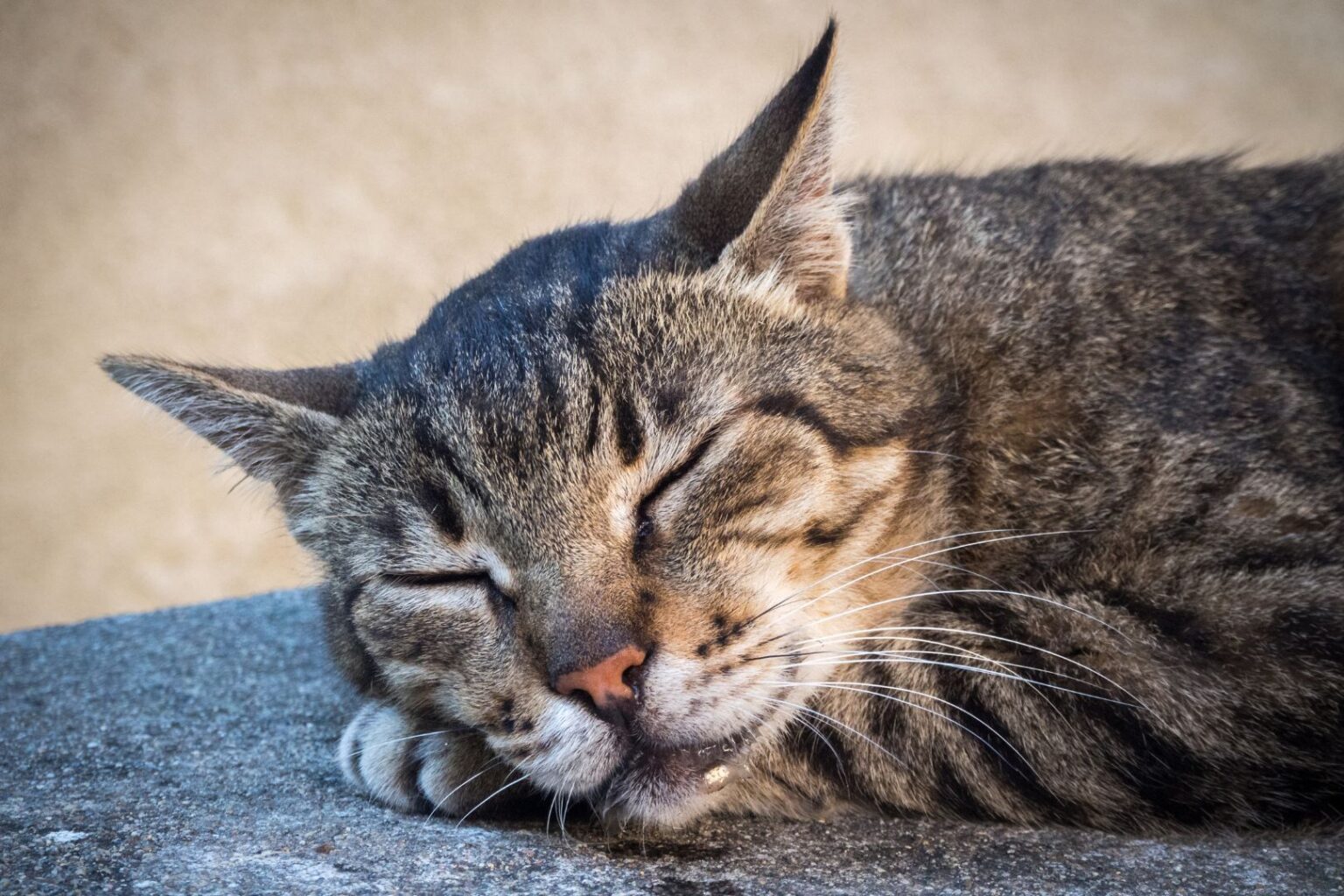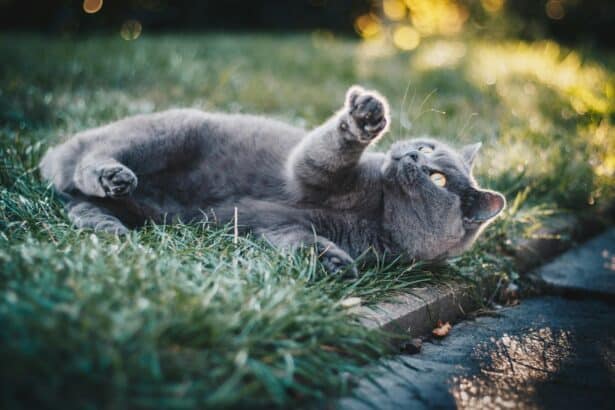Drooling among our feline friends can often raise questions, and even worry some owners. Indeed, if your cat drools, it may be a perfectly natural gesture or the sign of a more complex health problem. If you’re wondering why your cat suddenly drools so profusely, you’re not alone. So it’s understandable that you’re looking for answers for your pet’s well-being. Let us guide you through this informative article.
Natural reasons why cats drool
There’s nothing abnormal about salivation or drooling in cats, and it can be linked to a number of natural factors. Indeed, many cats drool when they’re in a state of relaxation or absolute happiness. This can happen while they’re sleeping, or when they’re confronted with certain smells, such as food that makes them want to eat, or even catnip. In these cases, salivation is perfectly normal and allows them to release certain stresses or excitements. So there’s no need to worry if you notice a little drool dripping from their mouths as they enjoy their favorite catnip. This catnip provokes a euphoric reaction in most felines, often resulting in increased saliva production.
When your cat’s salivation is a sign of illness
However, if the drooling persists and occurs outside of these relaxed or exciting times, there may be more worrying reasons. Indeed, a cat that drools excessively can be an alarming symptom of various health conditions. Among them, dental disorders are the most common, such as gingivitis or mouth injuries. Other conditions can also cause excessive salivation, such as mouth infections, a foreign body stuck in the throat, food poisoning or even a more serious disease of the nervous system. So it’s vital to keep a close eye on your pet and not ignore these warning signs. Don’t hesitate to consult a veterinarian if you observe any abnormal behavior, as it could save your dog’s life. Cat diseases can be very varied, so it’s essential to get a professional diagnosis.
How to deal with a cat that drools abnormally
If you notice your cat drooling abnormally, the first step is not to panic. It is important to consult your veterinarian as soon as possible. While waiting for this appointment, you can give your pet first aid by trying to rinse its mouth with water. If you suspect that this may be due to possible poisoning, it’s advisable to immediately remove your cat from the source of the suspected toxic substance and call your vet for advice on what steps to take. For more serious cases, your veterinarian can provide appropriate treatment depending on the origin of the excessive salivation.
Prevent health problems that can cause excessive salivation
The best way to prevent excessive salivation in your cat is to intervene regularly in your cat’s dental hygiene and health. Make sure the food you feed him is of good quality and adapted to his specific needs. Also, be sure to keep potentially dangerous objects away from your pet, as they could cause poisoning if ingested or chewed by your cat. A safe, healthy environment is essential for your feline’s well-being. And don’t neglect thecat tree, where he can express his natural instincts, let off steam and naturally wear out his claws in complete safety.
Love and understand your cat
In short, caring for your cat’s health and well-being is not only a responsibility, but also a privilege. Be alert to any change in behavior that may be a sign that something is wrong, and don’t hesitate to ask your vet for advice if in doubt. By understanding your cat’s needs and behavior, you can strengthen your bond with him and improve his quality of life. Every cat is unique and deserves your care. Let us know your observations and experiences in the comments, to enrich our collective knowledge of our four-legged friends.




